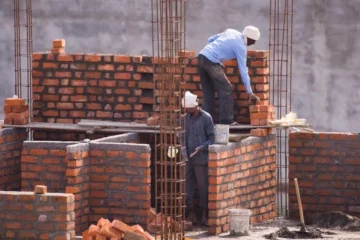New Delhi: Picture this: You’re planning to buy a home, and have scooped up your savings, secured bank finance, and struck a deal with a seller: A decision that would lead to a monthly drain on your finances for over a decade.
Would you trust a property broker ill-educated in the legal requirements, approvals and documentation to conclude the deal for you? Possibly not.
As India’s real estate industry braces for a regulatory shake up as a new law kicks in, experts are of the view that professional certification courses should be made mandatory for brokers, who connect buyers and sellers, manage documentation and work as key intermediaries in the entire process.
The real estate industry contributes approximately 7.8% to India’s gross domestic product and is the second-largest employment generator after the IT industry. The real estate market is expected to touch $180 billion by 2020, according to Real Estate Management Institute.
The central government passed the Real Estate (Regulation and Development) Act (RERA), 2016 in March to clear the way for setting up a real estate regulator, with a provision that can sharply improve transparency.
RERA defines a broker as anyone who negotiates a property transaction and receives fees for his services in form of commission.
“In most of the developed countries, brokers are always licensed, so there is no question of cheating or misrepresentation,” said Rajeev Talwar, chief executive officer of DLF Ltd and chairman of National Real Estate Development Council (NAREDCO), an autonomous body under the ministry of housing and urban poverty alleviation.
While the bill mandates all property brokers to register with the regulator, it doesn’t set any basic qualification or certification requirement for them. In developed markets such as the US and Hong Kong, such licences are issued after passing several exams and clearing criminal background checks, among others.
“My opinion is that these certifications should be compulsory,” said Tarun Bhati, member of National Association of Realtors (NAR) India, adding in case brokers are not able to go through a proper programme, they can always attend short 14-day courses.
NAR India is a countrywide association of real estate agents and part of NAR, which is the largest trade association in the US.
Many brokers are unaware of legal requirements, approval processes and tax planning, which can lead to losses for the customer due to incomplete processes or extra taxes. If a non-resident Indian (NRI) sells property in India, buyers have to deduct 20% from the property value. However, many buyers, sellers and brokers are not aware of this and the deducted money is paid to the government as tax, Bhati said.
Several organizations have started offering various certification courses to brokers and other real estate professionals engaged in sales, marketing and project management.
NARDECO offers a three-week certificate course in real estate management in collaboration with Guru Gobind Singh Indraprastha University and Human Settlement Management Institute. Real Estate Management Institute (REMI) is set to launch a broker certification course by the end of August. It already offers courses in project marketing and housing finance.
“There has been no structured certification that has trained brokers. A lot of them have learnt on the job. There has been no formalized process for them to skill themselves and for the consumers to evaluate the credibility of brokers,” Shubika Bilkha, business head of REMI said.
Many brokers have shown interest in these courses to gain skills and credibility in a segment that has no entry barriers, and has attracted charges of lack of transparency and cheating.
“We got the basic knowledge related to the real estate sector such as which documents should be checked and which authorities should be approached,” said Anil Kumar Chartrath, a property dealer in Mayur Vihar, who has a NARDECO certification.
“If I advertise about my certification, it will surely help in improving my business and increase people’s trust in dealers,” said Chartrath, adding certification should be made mandatory for brokers.
Land being a state subject, states will have to take the final call for framing rules that specify any basic minimum qualification for the brokers. However, with a huge gap between the demand for the professionals and the courses on offer, it may be difficult to make certification mandatory.
“I don’t think the government can wake up tomorrow and say everyone has to be certified. There is a certain process and time period over which it will happen and like any industry that goes from being unorganized to organized, there is that gap that will get filled accordingly,” said Bilkha
[Source:- Live ment]





